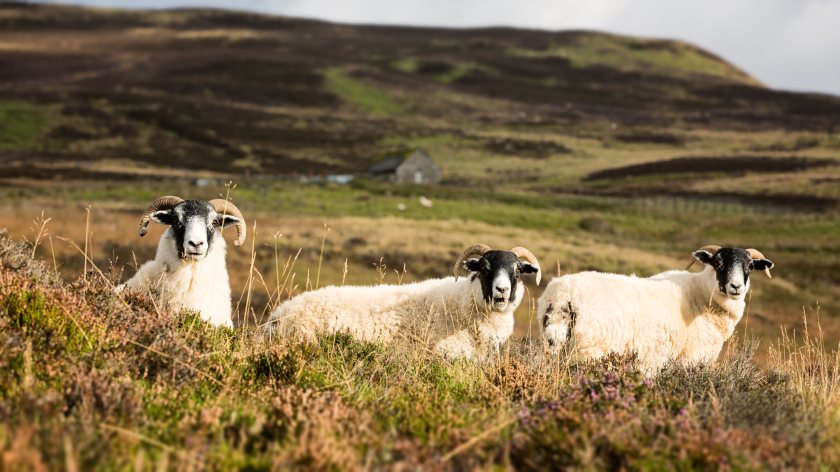Report calls for 'great change' to tackle Scottish farm emissions

Transforming Scottish farming to meet the challenge of limiting global warming to 1.5°C represents a change not seen since the leap from horses to tractors, a new report says.
The 'Farming for 1.5°C' report, collectively written by farmers, scientists and NGOs, maps out a ‘transformation pathway’ for Scottish agriculture to meet its targets.
For the last 18 months, they have listened to experts from across the agricultural and climate change arena in order to recommend how farming can become greener.
It recognises that farming has a unique opportunity to not just improve its own performance by reducing emissions, but to impact positively on wider society through good soil and land management, by locking up carbon in trees and soil, and by supporting ecosystems.
It states that without the engagement from farmers, with their ability to absorb emissions and not just cut them, it will be impossible for Scotland to deliver its 'net zero by 2045' target.
The report's authors say this engagement must have political and financial recognition from government.
NFU Scotland, which jointly sponsored the report along with Nourish Scotland, urged all sectors of Scottish agriculture to adopt its findings.
The union's president Andrew McCornick said: "NFU Scotland agrees that we need to improve agricultural and carbon efficiency, better manage our soils, and develop a new approach to sharing knowledge and technical support.
“What this report makes most clear is that we all need to act immediately to tackle the climate emergency."
He said Scottish government was now 'well equipped' with advice to take action that would support farmers help achieve national climate change targets.
“If agriculture is to play its part as a solution to climate change, it needs to see a long-term commitment set out by Scottish government that encompasses all sectors across the industry," Mr McCornick said.
"The industry must be supported, guided by policy, and equipped with science-led advice if we are to reduce emissions while continuing to produce high quality food and drink."
What are the report's key messages?
The Farming for 1.5°C report's key principles for Scottish agricultural transformation are:
• Change should be supported with the creation of a Transformation Steering Group, with high level representation from government and the industry.
• A new approach to knowledge sharing and technical support is a key priority.
• Identifying and enthusing industry leaders and influencers coupled with a communication strategy to reach all farmers will speed up change.
• There needs to be clarity about what is expected of Scotland’s agricultural land and businesses outside of agriculture’s own need to reach net zero.
• Emissions should be reduced through improving agricultural and carbon efficiency with better soil management at its core, coupled with national capping and on farm reduction targets for each of the three key greenhouse gases.
• An immediate ceiling on agricultural biogenic methane emissions should be set, with decreasing targets with an aim of at least 30% reduction by 2045 compared to today.
• Better nitrogen management is key in tackling excess nitrogen which is producing greenhouse gases, harming ecosystems and costing farmers money.
• Integrating renewable energy with developing technologies to reduce fossil fuel use needs to be supported by rural infrastructure improvements in energy and communications.
• Rural policy, including subsidies, advice and regulation need urgent reform to prioritise building biodiversity, alongside targeting greenhouse gas reductions and sequestration








